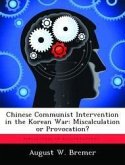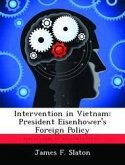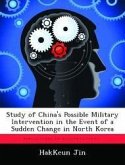The ability to understand the impact of foreign intervention and its ramifications on conflict is a vital requirement for the United States military. As the United States continues to confront unconventional and irregular global threats, in conjunction with host nation military forces, the ability to understand its impact becomes paramount. This study examines the influence of foreign intervention on war fighting during the Angolan Civil War and analyses how the various levels of support impacted the successes and failures of the internal warring factions. Through a combination of descriptive and quantitative analysis conclusions are drawn to better understand the relationships between external support and the internal players during the Angolan conflict. These conclusions provide a framework to understand the impact of foreign intervention and how it impacted the prosecution and outcome of the Angolan Civil War. This study also provides a model which can be used to examine past, present and possible future conflicts. This model can be used as a tool for strategic planners to understand the impact of external support and how it can influence their operations. It also allows for the development of a strategic plan that uses the appropriate level of support to a faction or government engaged in conflict to create a strategic result that supports national foreign policy objectives.








